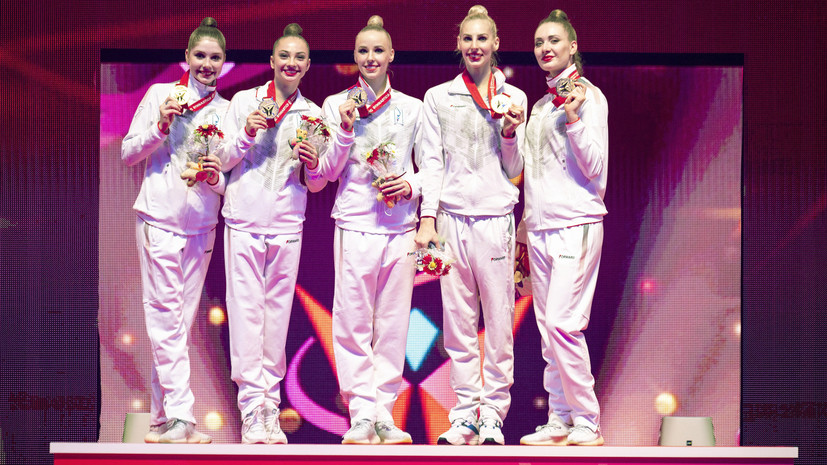On Friday, October 29, at the Rhythmic Gymnastics World Championships, the group exercises began, and Dina and Arina Averin, who had already won several personal medals, had a day of rest before the all-around.
However, even on their day off, they won another gold.
This happened thanks to the new format of team competitions - a separate standings, in which the three best teams of the tournament are awarded.
At all times, this set of awards was played only by participants in individual starts: their marks in qualifications were added up - and on the basis of these results medals were distributed.
Since 1995, Russian women have won gold (only in 2001 their victory was canceled due to positive tests of Alina Kabaeva and Irina Chashchina for furosemide).
This order left the gymnasts who devoted themselves to group exercises without additional medals, but this injustice has been eliminated this year.
Their results in the all-around final are now also taken into account in the team classification.
The sisters of Averina have already made their contribution, and on Friday it was the turn of the "group members" to contribute to another victory - both for them and for themselves.
Shortly before the start of the World Cup, there was a nuisance with the Russian national team.
Olga Karaseva, a member of the main group, was injured and had to refuse a trip to Kitakyushu.
She had a lot of responsibility in the team: the 16-year-old gymnast performed two exercises along with Anastasia Bliznyuk, Angelina Shkatova and Alisa Tishchenko.
Polina Orlova and Maria Tolkacheva, who trained in only one type, had to completely replace Karasev.
The girls quickly mastered the new programs, however, the all-around finals did not go without failures.
The program with three hoops and four clubs to music from the opera "Ruslan and Lyudmila" began with the annoying loss of the hoop - one of the gymnasts accidentally dropped it on the carpet.
But there were no more such serious mistakes, and the rest of the program clearly impressed the judges.
The Russian team scored 42,100 points, and this result was the best for this exercise.
Previously leading Italians earned almost half a point less.
The Russian girls were rescued by a solid mark for the complexity, while in performance they were inferior to three teams.
Soon they returned to the carpet to perform with five balls to the "Polovtsian Dances", and here there could be no questions for them.
Each element was brought to the end, and objects flying almost across the entire square always ended up in the hands of the athletes.
According to both criteria, which make up the final score, the Russians were ahead of all their rivals.
They received 46,250 points, which was the best result for ball programs.
In total, the Russian team scored 88.350 points and won the world championship in group all-around for the fifth time in a row, repeating its achievement, established at the turn of two centuries, and the series of the Bulgarian national team, which did not know defeat in the 1980s.
On Sunday, the girls will compete for medals in separate exercises.
Of course, in the team competition, which was mentioned earlier, Russian athletes also did not experience any competition.
The overall results of the "group players" and the Averin sisters allowed them to win another set of gold medals with a fantastic margin - almost 30 points - from Italy and Belarus.
For Dina, this victory was especially important. She became a 17-time world champion and repeated the achievement of Evgenia Kanaeva, established ten years ago. At the same time, the youngest of the Averin sisters has three more silver and one bronze medal, and the Olympic champion of Beijing and London has only one silver medal, so Dina has the right to be considered the most titled gymnast at the world championships. On Saturday, she will have a chance to win the 18th gold in the individual all-around.
Maria Tolkacheva also wrote her name in history.
Two golds in one day made her a ten-time world champion, and this is already an absolute record for representatives of group rhythmic gymnastics.
She missed the Tokyo Olympics this year due to coronavirus, but was able to triumphantly return to the team, with which the 24-year-old will still have a chance to compete for two top honors in Kitakyushu.

